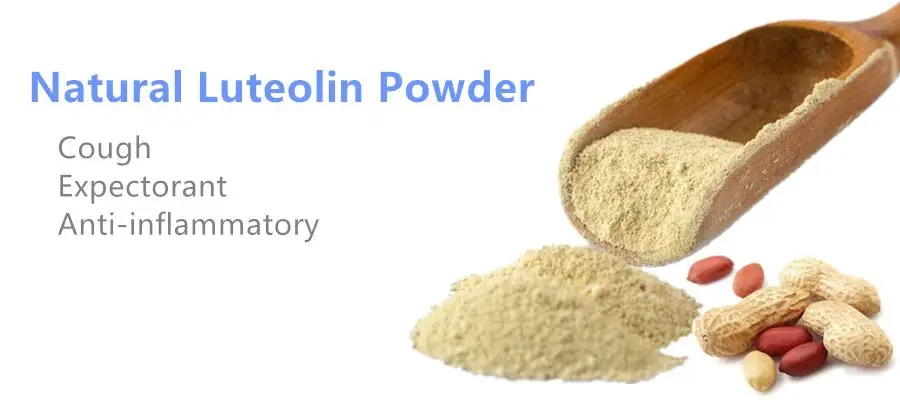Lutein Powder: Key Benefits for Vision, Skin, and Cognitive Function
Lutein powder has emerged as a powerful natural supplement with far-reaching benefits for eye health, skin protection, and cognitive function. This carotenoid pigment, found naturally in various fruits and vegetables, has gained significant attention in the health and wellness industry due to its potent antioxidant properties and ability to filter harmful blue light. Extracted primarily from marigold flowers, lutein powder is available in concentrations ranging from 5% to 20%, offering a versatile ingredient for formulating supplements, functional foods, and nutraceuticals. As research continues to unveil its multifaceted benefits, lutein powder is becoming an increasingly popular choice for those seeking to support their vision, maintain youthful skin, and enhance brain health. This article explores the science behind lutein's remarkable properties and examines the clinical evidence supporting its use in promoting overall wellness.

The Science of Blue Light Filtration and Antioxidant Protection for Eye and Skin Health
Understanding Lutein's Role as a Natural Blue Light Filter
Lutein powder acts as a powerful natural blue light filter, protecting both the eyes and skin from the potentially harmful effects of high-energy visible (HEV) light. This carotenoid accumulates in the macula, the central part of the retina responsible for sharp, detailed vision. By selectively absorbing blue light, lutein helps reduce oxidative stress and potential damage caused by prolonged exposure to digital screens and artificial lighting. Studies have shown that individuals with higher macular pigment optical density (MPOD), largely composed of lutein and zeaxanthin, experience less visual fatigue and improved contrast sensitivity. Incorporating lutein powder into eye health formulations can provide a valuable defense against the increasing prevalence of digital eye strain and age-related macular degeneration (AMD).
Antioxidant Mechanisms of Lutein in Ocular and Dermal Tissues
The antioxidant properties of lutein powder play a crucial role in protecting both ocular and dermal tissues from oxidative stress. As a potent free radical scavenger, lutein neutralizes reactive oxygen species (ROS) that can damage cellular structures and accelerate aging processes. In the eye, lutein's antioxidant action helps maintain the integrity of photoreceptor cells and the retinal pigment epithelium, key components in preserving vision quality. For skin health, lutein powder acts as a natural sunscreen, absorbing UV radiation and reducing the formation of harmful free radicals that contribute to premature aging and skin damage. By incorporating lutein powder into skincare formulations, manufacturers can offer products that provide both photoprotection and anti-aging benefits, addressing multiple consumer concerns with a single, natural ingredient.
Synergistic Effects of Lutein with Other Antioxidants
Lutein powder's effectiveness is often enhanced when combined with other antioxidants, creating synergistic effects that amplify its protective properties. For instance, the pairing of lutein with zeaxanthin, another carotenoid found in the macula, has been shown to provide superior protection against AMD compared to either compound alone. Similarly, combining lutein powder with vitamins C and E, zinc, and omega-3 fatty acids can create a comprehensive eye health formula that addresses multiple aspects of ocular wellness. In skincare applications, lutein works well alongside other antioxidants like vitamin C, resveratrol, and green tea extract to provide broad-spectrum protection against environmental stressors and signs of aging. By leveraging these synergistic relationships, formulators can develop more effective and marketable products that harness the full potential of lutein powder's antioxidant capabilities.
Examining the Clinical Evidence: How Lutein Powder Supports Macular Health and Cognitive Performance
Long-term Studies on Lutein Supplementation and AMD Prevention
Numerous long-term clinical studies have demonstrated the efficacy of lutein powder in supporting macular health and preventing age-related macular degeneration (AMD). The Age-Related Eye Disease Study 2 (AREDS2), a landmark five-year clinical trial, found that supplementation with lutein and zeaxanthin significantly reduced the risk of progression to advanced AMD in high-risk individuals. Participants who received lutein powder as part of their supplement regimen showed a 10% reduction in progression to advanced AMD compared to those who did not. Furthermore, a meta-analysis of multiple studies revealed that individuals with the highest dietary intake of lutein had a 12% lower risk of developing early AMD and a 41% lower risk of advanced AMD compared to those with the lowest intake. These findings underscore the importance of lutein powder in maintaining long-term eye health and preserving vision quality as we age.
Cognitive Benefits Observed in Memory and Processing Speed Trials
Recent research has unveiled exciting cognitive benefits associated with lutein powder supplementation. A series of clinical trials have shown improvements in various aspects of cognitive function, particularly in memory and processing speed. One study involving older adults found that those with higher levels of lutein in their diet or through supplementation performed better on tests of verbal fluency, memory, and reasoning. Another trial demonstrated that lutein powder supplementation over 12 months led to significant improvements in complex attention and cognitive flexibility. These cognitive enhancements are thought to be related to lutein's accumulation in brain tissue, where it may protect neurons from oxidative stress and improve cellular communication. As the population ages and concerns about cognitive decline grow, lutein powder presents a promising natural intervention for maintaining brain health and supporting cognitive function throughout life.
Skin Health Improvements Noted in Clinical Dermatology Research
Clinical dermatology research has revealed significant skin health improvements associated with lutein powder supplementation. A double-blind, placebo-controlled study found that oral supplementation with lutein and zeaxanthin increased skin hydration, elasticity, and lipid content while reducing oxidative stress markers in the skin. Participants also reported subjective improvements in overall skin tone and appearance. Another study focusing on photoprotection demonstrated that lutein powder supplementation increased the skin's resistance to UV-induced erythema, effectively acting as an internal sunscreen. These findings suggest that lutein powder can play a crucial role in comprehensive skincare regimens, offering protection from both intrinsic and extrinsic aging factors. As consumers increasingly seek natural solutions for skin health, lutein powder stands out as a versatile ingredient that can address multiple aspects of dermal wellness, from hydration to photoprotection.
A Guide to Formulating Supplements for Vision Support, Anti-Aging, and Brain Health with Lutein
Optimal Dosage and Delivery Forms for Maximum Bioavailability
Formulating effective supplements with lutein powder requires careful consideration of dosage and delivery forms to ensure maximum bioavailability. Clinical studies have shown that a daily intake of 6-20 mg of lutein is effective for various health benefits. For vision support, doses of 10-20 mg per day have demonstrated significant improvements in macular pigment optical density and visual function. When formulating for anti-aging and skin health, lower doses of 6-10 mg daily have shown promising results. To enhance bioavailability, lutein powder should be combined with a source of healthy fats, as it is a fat-soluble compound. Soft gel capsules or emulsified liquid formulations can improve absorption compared to traditional powder-filled capsules. Additionally, micronization techniques can further increase the bioavailability of lutein powder, allowing for more efficient uptake by the body.
Synergistic Ingredient Combinations for Targeted Health Benefits
Creating effective lutein-based supplements often involves combining it with synergistic ingredients to target specific health benefits. For vision support formulations, pairing lutein powder with zeaxanthin, meso-zeaxanthin, and omega-3 fatty acids can provide comprehensive protection for ocular health. Adding vitamins C and E, zinc, and copper can further enhance the antioxidant properties of the supplement. When formulating for cognitive function, consider combining lutein with phosphatidylserine, B-complex vitamins, and ginkgo biloba for improved memory and mental clarity. For skin health and anti-aging supplements, lutein powder works well alongside other carotenoids like astaxanthin, as well as collagen peptides, hyaluronic acid, and vitamin C. These synergistic combinations can offer more comprehensive solutions to consumers seeking multi-faceted health benefits from a single supplement.
Innovative Delivery Systems for Enhanced Absorption and Efficacy
To maximize the effectiveness of lutein powder in supplements, innovative delivery systems can be employed to enhance absorption and efficacy. Liposomal encapsulation is one such technology that can significantly improve the bioavailability of lutein by protecting it from degradation in the digestive tract and facilitating its transport across cell membranes. Nanoparticle formulations offer another avenue for increasing lutein's absorption and distribution throughout the body. For topical applications in skincare products, using lutein powder in nanoemulsions or lipid nanocarriers can enhance its penetration into deeper skin layers, maximizing its photoprotective and anti-aging effects. Additionally, time-release formulations can provide a steady supply of lutein throughout the day, potentially improving its overall efficacy. By leveraging these advanced delivery systems, manufacturers can create lutein-based products that stand out in the market for their superior absorption and effectiveness.
Conclusion
Lutein powder has emerged as a versatile and powerful ingredient in the realm of health and wellness, offering significant benefits for vision, skin, and cognitive function. Its ability to filter blue light, act as a potent antioxidant, and accumulate in crucial tissues makes it an invaluable component in formulations targeting age-related eye conditions, skin health, and brain function. As research continues to uncover new benefits and optimal delivery methods, lutein powder is poised to play an increasingly important role in preventive health strategies and anti-aging solutions. By harnessing the power of this natural carotenoid, formulators and consumers alike can tap into a wealth of health benefits supported by robust scientific evidence.
At Avans NutriHealth Co., Ltd., we are committed to providing high-quality lutein powder and other plant extracts to support the development of innovative health products. As a leading manufacturer and supplier in China, we offer lutein extract powder in concentrations of 5%, 10%, and 20%, suitable for various applications in food, health care products, and medicine. Our products are backed by ISO, USDA, HACCP, FSSC22000, and HALAL certifications, ensuring the highest standards of quality and safety. With our advanced R&D capabilities and annual production capacity of 1,000 tons, we are well-equipped to meet the growing demand for lutein powder in the global market. For more information on our lutein products or to discuss your specific formulation needs, please contact us at Lillian@avansnutri.com. Our team of experts is ready to provide comprehensive support and personalized solutions to help you create successful lutein-based products.
FAQ
Q: What is lutein powder and where does it come from?
A: Lutein powder is a carotenoid pigment extracted primarily from marigold flowers. It's available in concentrations ranging from 5% to 20% and is used in supplements, functional foods, and nutraceuticals.
Q: How does lutein benefit eye health?
A: Lutein acts as a natural blue light filter and antioxidant in the eye, protecting against age-related macular degeneration (AMD) and reducing visual fatigue.
Q: Can lutein powder improve skin health?
A: Yes, lutein powder can act as a natural sunscreen, protect against UV damage, and improve skin hydration and elasticity.
Q: What are the cognitive benefits of lutein supplementation?
A: Studies have shown that lutein can improve memory, processing speed, and overall cognitive function, particularly in older adults.
Q: What is the recommended daily dosage of lutein?
A: Clinical studies suggest that 6-20 mg of lutein daily can provide various health benefits, with 10-20 mg typically recommended for vision support.
References
1. Age-Related Eye Disease Study 2 Research Group. (2013). Lutein + zeaxanthin and omega-3 fatty acids for age-related macular degeneration: the Age-Related Eye Disease Study 2 (AREDS2) randomized clinical trial. JAMA, 309(19), 2005-2015.
2. Johnson, E. J. (2014). Role of lutein and zeaxanthin in visual and cognitive function throughout the lifespan. Nutrition Reviews, 72(9), 605-612.
3. Stringham, J. M., Hammond, B. R., Nolan, J. M., Wooten, B. R., Mammen, A., Smollon, W., & Snodderly, D. M. (2008). The utility of using customized heterochromatic flicker photometry (cHFP) to measure macular pigment in patients with age-related macular degeneration. Experimental Eye Research, 87(5), 445-453.
4. Palombo, P., Fabrizi, G., Ruocco, V., Ruocco, E., Fluhr, J., Roberts, R., & Morganti, P. (2007). Beneficial long-term effects of combined oral/topical antioxidant treatment with the carotenoids lutein and zeaxanthin on human skin: a double-blind, placebo-controlled study. Skin Pharmacology and Physiology, 20(4), 199-210.
5. Johnson, E. J., McDonald, K., Caldarella, S. M., Chung, H. Y., Troen, A. M., & Snodderly, D. M. (2008). Cognitive findings of an exploratory trial of docosahexaenoic acid and lutein supplementation in older women. Nutritional Neuroscience, 11(2), 75-83.
6. Yeum, K. J., Booth, S. L., Sadowski, J. A., Liu, C., Tang, G., Krinsky, N. I., & Russell, R. M. (1996). Human plasma carotenoid response to the ingestion of controlled diets high in fruits and vegetables. The American Journal of Clinical Nutrition, 64(4), 594-602.



